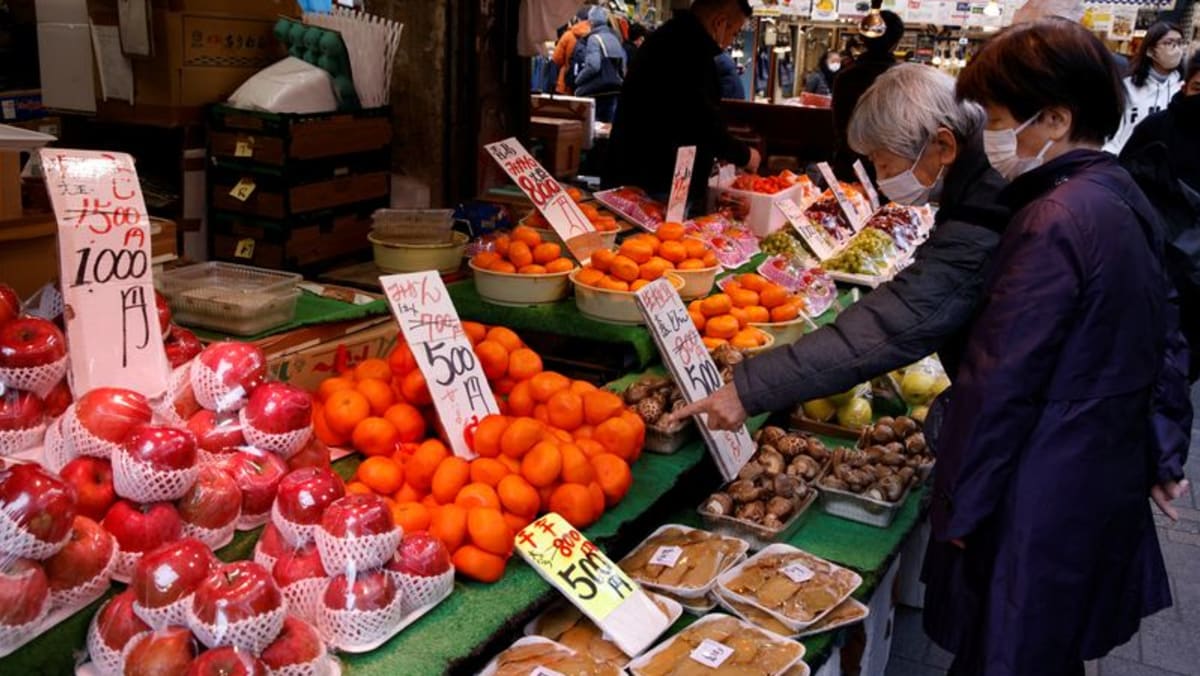TOKYO: Japanese households’ inflation expectations heightened in the three months to March, a Bank of Japan survey showed on Friday (Apr 11), keeping the central bank under pressure to raise interest rates further.
The survey, coupled with recent growing signs that companies are shedding their long-held aversion to price and wage hikes, suggest that domestic economic conditions for additional interest rate hikes were falling into place.
But heightened market volatility and global recession fears caused by higher US tariffs are likely to keep the Bank of Japan (BOJ) from raising rates at its next policy meeting on Apr 30-May 1, analysts say.
“Domestic economic and price conditions are moving in line with the BOJ’s view,” said Naomi Muguruma, chief bond strategist at Mitsubishi UFJ Morgan Stanley Securities.
“But Trump’s tariff shock has heightened uncertainty over the outlook,” she said in pushing back the projected timing for the next BOJ rate hike by six months to January 2026.
As many as 86.7 per cent of households expect prices to rise a year from now, up from the previous survey’s figure of 85.7 per cent in December and the highest since June 2024, the BOJ survey showed.
Of the total households surveyed between February 6 and Mar 4, 83.5 per cent expect prices to rise five years from now, up from 82.5 per cent in the December survey, it said.
Households expect prices to rise by an average 12.2 per cent a year from now, up from 11.5 per cent in the previous survey, and by 9.6 per cent five years from now, up from 9.2 per cent in December.
Their expectations, as is typical, are well above Japan’s headline inflation, which hit 3.7 per cent in February.
“The recent rise in food and gasoline prices likely affected households’ view on the price outlook,” a BOJ official told a briefing.
The BOJ ended a radical stimulus programme last year and raised interest rates to 0.5 per cent in January on the view Japan was on the cusp of sustainably achieving its 2 per cent inflation target.
BOJ Governor Kazuo Ueda has signalled the bank’s readiness to keep raising interest rates if the economy continues to recover, and is prodding firms to raise wages and prices.
He has said heightened household and corporate inflation expectations are key pre-requisites for further rate hikes.
While rising living costs heighten inflation expectations and help the BOJ make the case for more rate hikes, they could backfire by hurting consumption and the broader economy.
Many households said they increased spending on groceries, and less on dining out and leisure activities, in a sign they were feeling the pinch from the rising cost of living.
Government surveys released earlier this week showed service-sector mood worsened for a third straight month in March and consumer sentiment slumping to levels unseen in two years.
With an upper house election looming in July, lawmakers have begun pressuring the government to take steps to cushion the economic blow from the US tariff and rising living costs.
Japan’s ruling coalition is considering requesting a cut to the sales tax rate, the Yomiuri newspaper reported on Friday.
